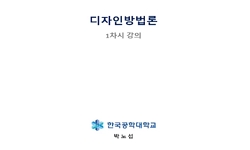In general, it is the application of the methodology that differentiates the modern science from the traditional approaches to the human knowledge. In that sense, Kwon Sang-ro is the pioneer who introduced the modern methodology to the stu...
http://chineseinput.net/에서 pinyin(병음)방식으로 중국어를 변환할 수 있습니다.
변환된 중국어를 복사하여 사용하시면 됩니다.
- 中文 을 입력하시려면 zhongwen을 입력하시고 space를누르시면됩니다.
- 北京 을 입력하시려면 beijing을 입력하시고 space를 누르시면 됩니다.
https://www.riss.kr/link?id=A76467161
- 저자
- 발행기관
- 학술지명
- 권호사항
-
발행연도
2002
-
작성언어
-
- 주제어
-
KDC
220
-
등재정보
KCI우수등재
-
자료형태
학술저널
-
수록면
35-57(23쪽)
- 제공처
-
0
상세조회 -
0
다운로드
부가정보
다국어 초록 (Multilingual Abstract)
In general, it is the application of the methodology that differentiates the modern science from the traditional approaches to the human knowledge. In that sense, Kwon Sang-ro is the pioneer who introduced the modern methodology to the study of Buddhism. And indeed, he clearly marks the beginning of the true modern Buddhism of Korea.<BR> Kwon Sang-ro seems to have an accurate understanding on both of the comparative and evolutionary approach that were the only available heuristics in the early stage of the religious study, and based on that, developed quite unique theories on the religious typology and the origin of religion as well. Furthermore, he come to a clear recognition of the religious pluralism, where he believes, Buddhism must strive for the promotion and renovation in order to survive and progress as well in the time of religious rivalries. It is the motive behind which his effort has been put up with in the search for the methodology of the modern Buddhism.<BR> Kwon Sang-ro, based on the thoroughly pragmatic and primitive egalitarianism embedded in the Buddhism, shows a level-headed critical ethos on the real picture of the Korean Buddhism, in that he left behind with a large volume of pioneering works as concentrating on the establishment of the history of Korean Buddhism in accordance with the evolutionary approach. In addition, he has steered the orientation of the Korean Buddhism by placing into the academic arena for such issues as the periodic classification, the origin of branches of thoughts, clarification on traditions, debate on the nature of Korean Zen Buddhism, etc.
목차 (Table of Contents)
- Ⅰ. 문제의 제기
Ⅱ. 근대적인 종교 연구 방법론
Ⅲ. 근대 한국 불교학 성립에의 공헌
Ⅳ. 끝맺는 말
Engliso Summary
- Ⅰ. 문제의 제기
Ⅱ. 근대적인 종교 연구 방법론
Ⅲ. 근대 한국 불교학 성립에의 공헌
Ⅳ. 끝맺는 말
Engliso Summary
동일학술지(권/호) 다른 논문
-
- 불교학연구회
- 조윤호(Cho Yoon-ho)
- 2002
- KCI우수등재
-
- 불교학연구회
- 박상수(Park Sang-soo)
- 2002
- KCI우수등재
-
- 불교학연구회
- 이지수(Lee Ji-soo)
- 2002
- KCI우수등재
-
僧伽羯磨의 성립 조건에 관한 고찰- 첨파 건도를 중심으로
- 불교학연구회
- 이자랑(Lee Ja-rang)
- 2002
- KCI우수등재





 RISS
RISS 스콜라
스콜라






